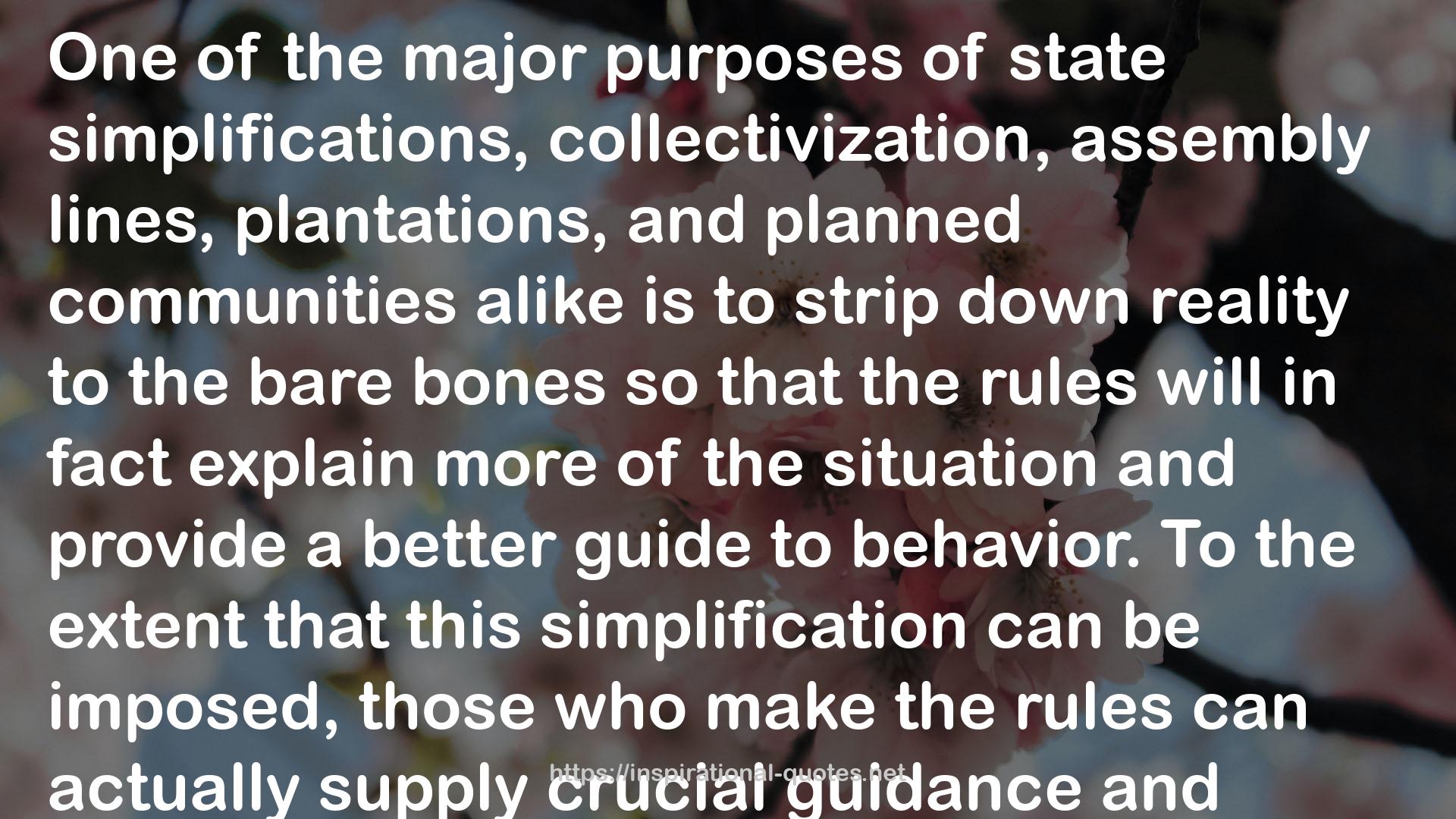" One of the major purposes of state simplifications, collectivization, assembly lines, plantations, and planned communities alike is to strip down reality to the bare bones so that the rules will in fact explain more of the situation and provide a better guide to behavior. To the extent that this simplification can be imposed, those who make the rules can actually supply crucial guidance and instruction. This, at any rate, is what I take to be the inner logic of social, economic, and productive de-skilling. If the environment can be simplified down to the point where the rules do explain a great deal, those who formulate the rules and techniques have also greatly expanded their power. They have, correspondingly, diminished the power of those who do not. To the degree that they do succeed, cultivators with a high degree of autonomy, skills, experience, self-confidence, and adaptability are replaced by cultivators following instructions. Such reduction in diversity, movement, and life, to recall Jacobs’s term, represents a kind of social “taxidermy.” The "
― James C. Scott , Seeing Like a State: How Certain Schemes to Improve the Human Condition Have Failed
